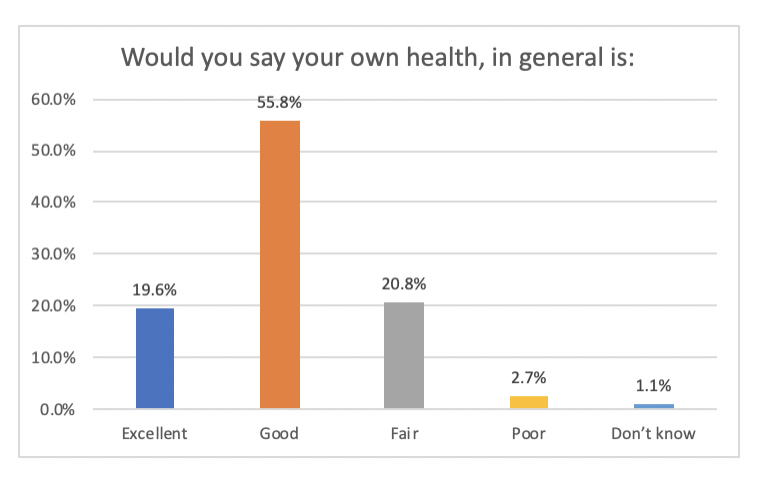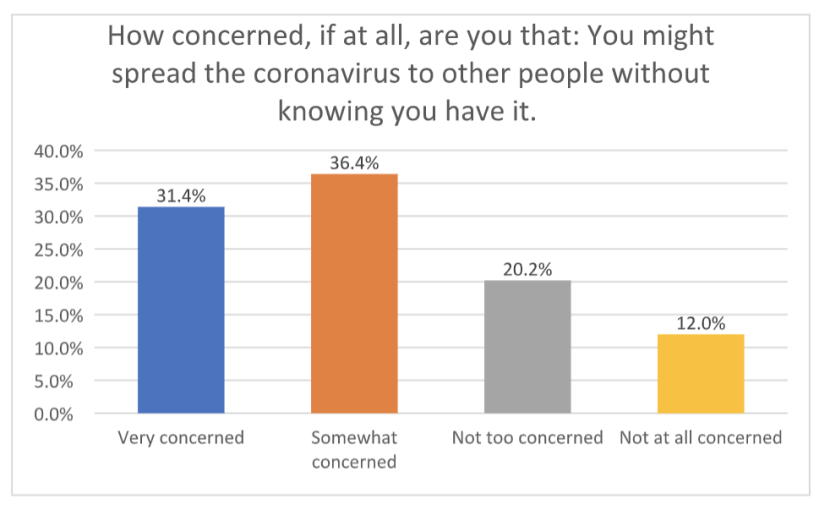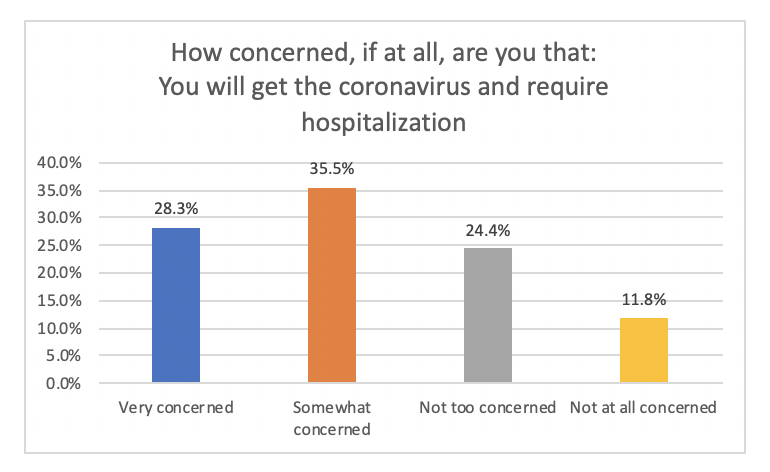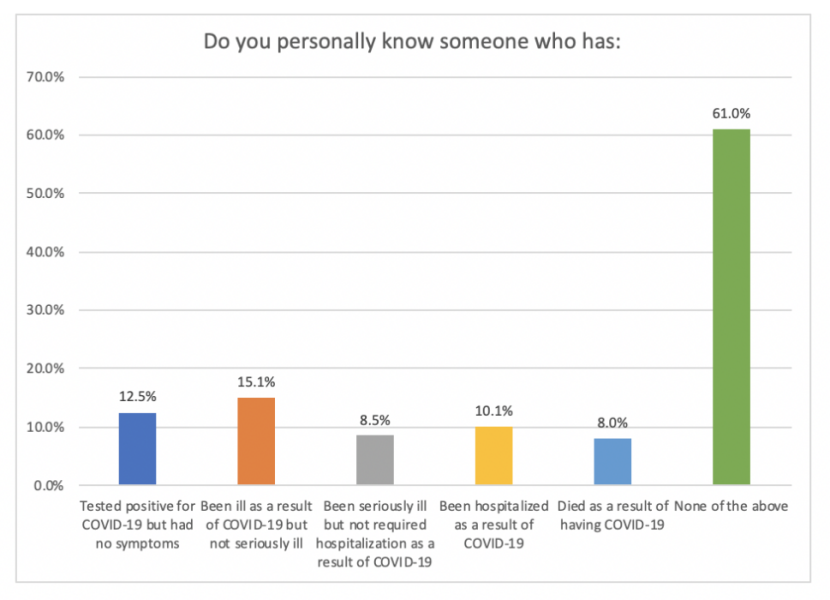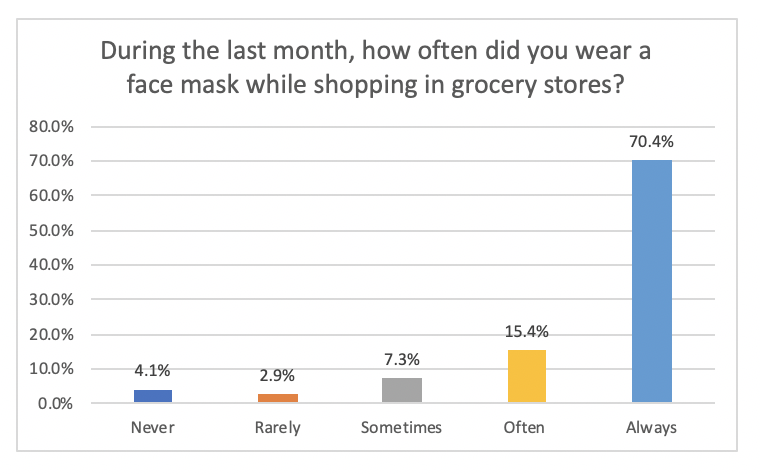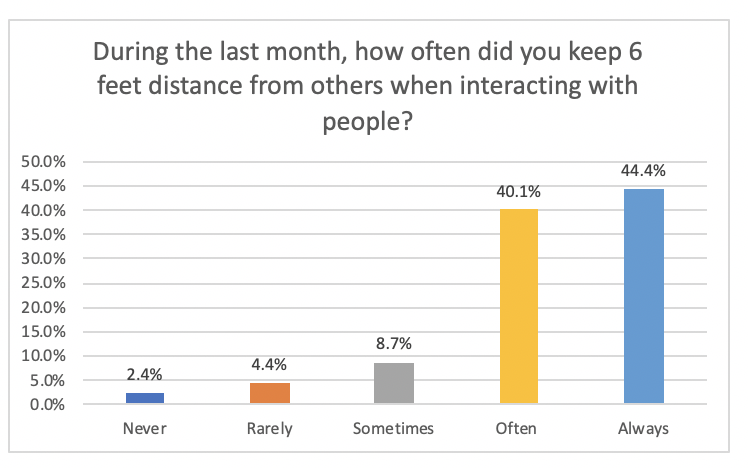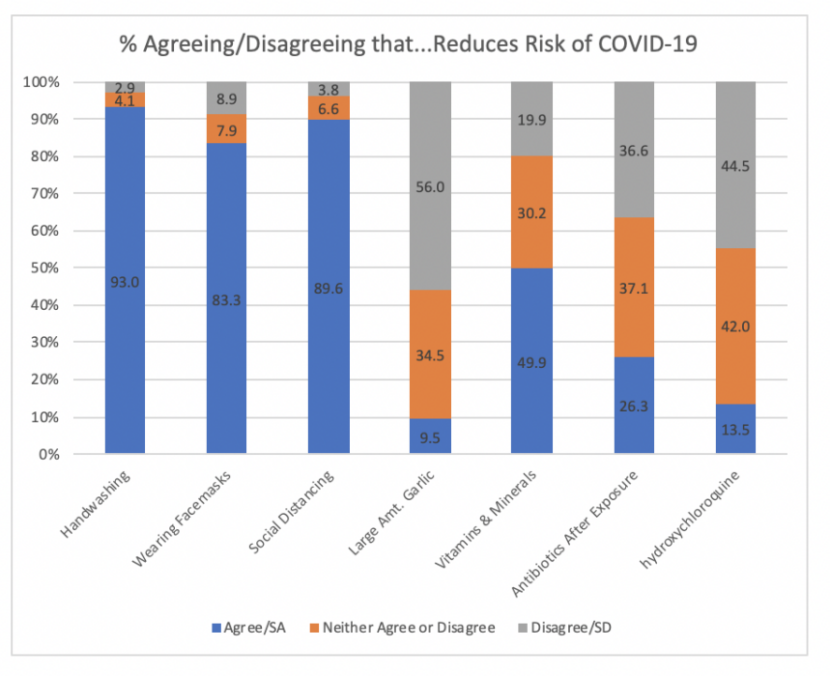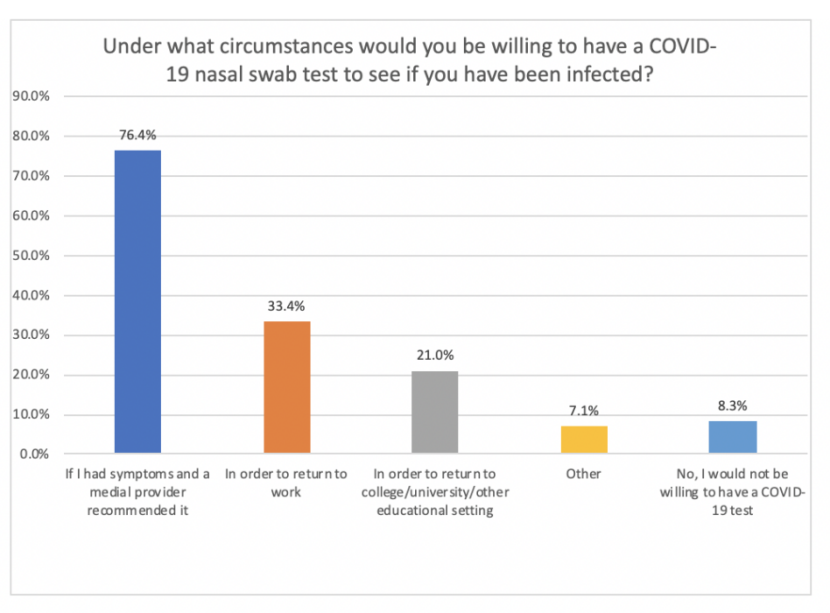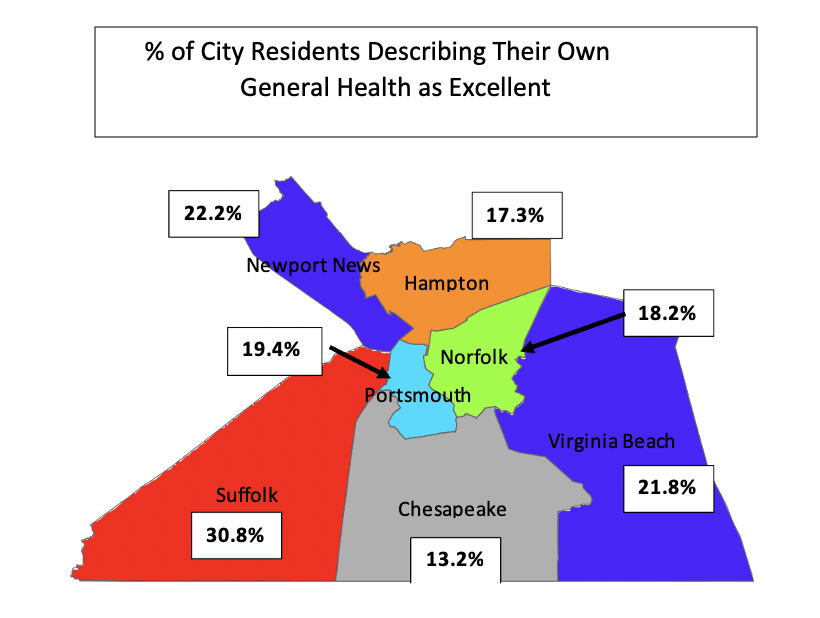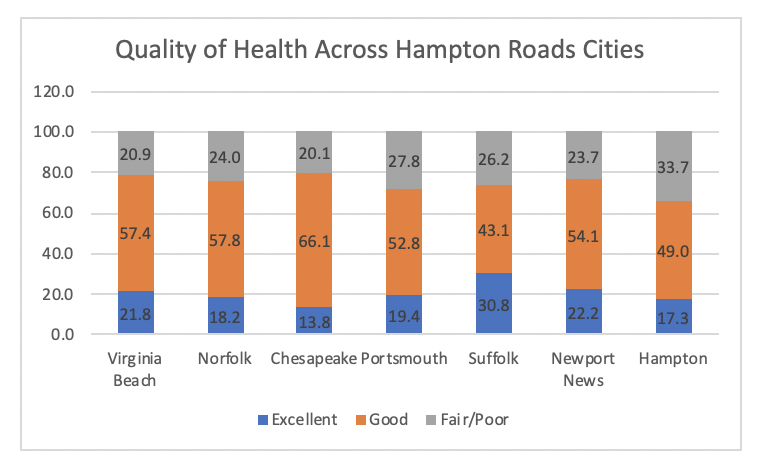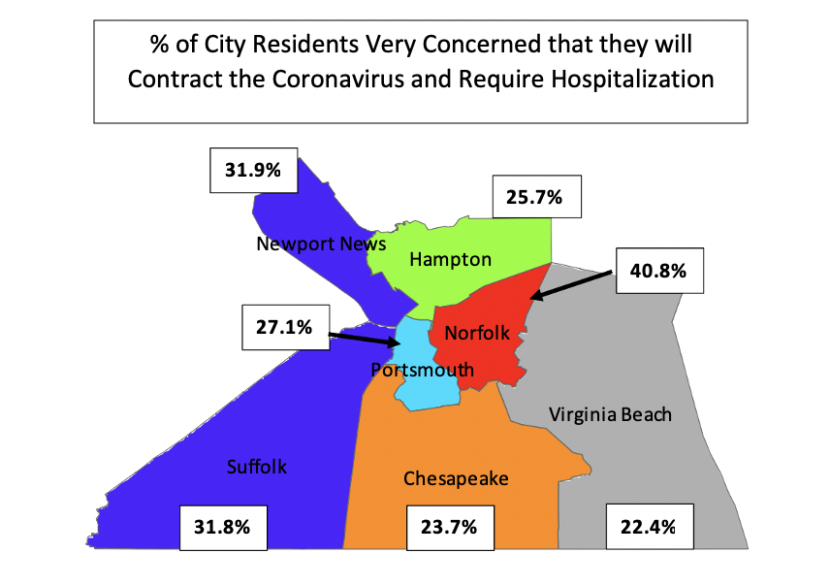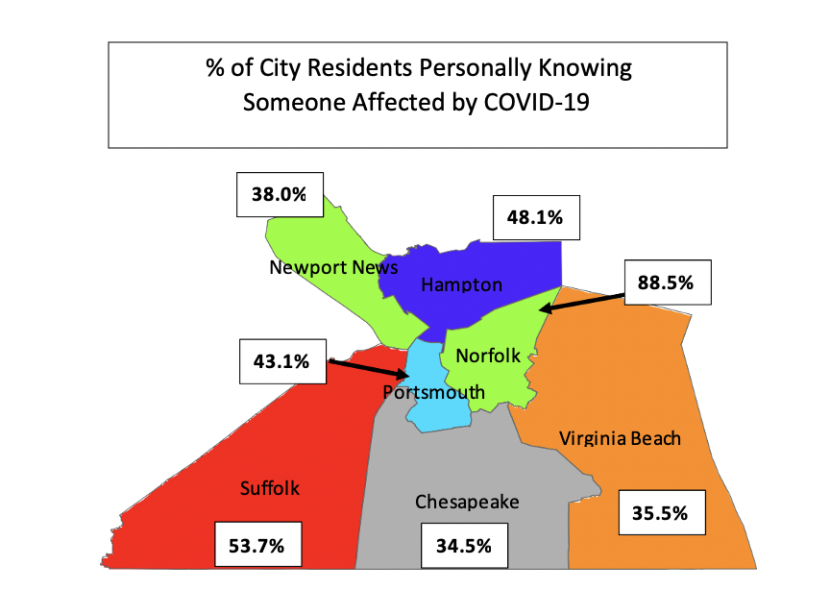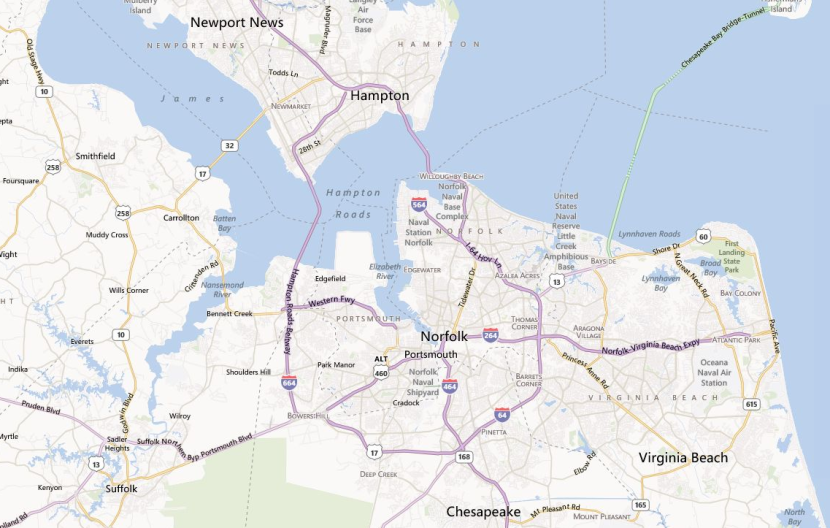The Social Science Research Center (SSRC) at Old Dominion University recently completed data collection for the 11th annual Life in Hampton Roads (LIHR) survey. The purpose of the survey is to gain insight into residents’ perceptions of the quality of life in Hampton Roads and the COVID-19 pandemic, as well as other topics of local interest such as perceptions of police, employment and other issues. A total of 1,105 online surveys were completed between June 26 and July 13 (during Phase 2 and Phase 3 of Virginia’s reopening plan). Of these, 1,100 were from residents of the seven Hampton Roads cities included in the Life in Hampton Roads survey and constituted the final dataset.
It is important to note that the methodology this year differs from previous Life in Hampton Roads surveys. For several reasons, including COVID-19 social distancing guidelines and telework directives, we moved from a telephone survey to a web-based design using two panels of respondents. This change limits to some degree the ability to compare this year’s results with those from previous years or to as confidently generalize the results to the Hampton Roads population as a whole. Nonetheless, we note that an increasing number of surveys have moved online in recent years, and that in many instances useful data has been developed despite the challenges of online survey research. For more detailed information on the methodological changes and potential impacts please see the methodology section in the pending full report, or please contact the SSRC directly.
The 2020 survey included several questions about health-related concerns and behaviors of residents during the COVID-19 pandemic. Responses provide insight into the experiences and concerns of Hampton Roads citizens around a variety of health-related topics.
General Health and Personal Concerns Regarding COVID-19
Despite the COVID-19 pandemic, about three-quarters of Hampton Roads residents felt that their health in general was good (19.6%) or excellent (55.8%). Only 2.7% rated their health as poor while one in five rated their health as fair (20.8%).
Even though residents reported generally good health, they still expressed health-related concerns given COVID-19 conditions. More than two-thirds were at least somewhat concerned about spreading the virus to others without knowing it (67.8%). More than 60% were very concerned (28.3%) or somewhat concerned (35.5%) that they would get the coronavirus and require hospitalization.
Respondents reported the above concerns despite the fact that many did not personally know someone who had tested positive, been ill or been hospitalized because of the virus (61%). Just over 12% of respondents knew someone who had tested positive but did not have symptoms and 15.1% knew someone who had been ill but not seriously because of the virus. About 8% knew someone who had been seriously ill but did not require hospitalization and 10.1% knew someone who had been hospitalized because of COVID-19. Only 8% of respondents knew someone personally who had died as a result of the virus.
Perceptions and Self-Reported Behaviors Related to Risk-Reduction
Respondents were asked a series of questions about their use of masks and social distancing as well as their opinions on what factors may reduce their risk of COVID-19. Just under 90% of respondents reported wearing a face mask while shopping in grocery stores either “always” (70.4%) or “often” (15.4%) in the past month. Almost 85% reported keeping 6 feet apart when interacting with others in the past month – although the percentage of “always” responses was lower than that of wearing masks while grocery shopping (44.4% compared to 70.4%).
The vast majority of Hampton Roads residents responding to the survey agreed that frequent hand washing (93%), wearing a mask (83.3%) and social distancing (89.6%) can significantly reduce the risk of COVID-19. These are ways that the Centers for Disease Control and Prevention (CDC) have recommended to protect oneself and others from the virus.
Respondents had mixed levels of agreement on other types of behaviors and their ability to significantly reduce the risk of COVID-19. Nearly half felt that taking vitamins and minerals could significantly reduce the risk (49.9%) and more than half (56%) disagreed that consuming large quantities of garlic could reduce the risk. There was even more diversity and ambivalence over the utility of strategies that have not been endorsed by the CDC. Indeed, 30% or more were unsure (neither agreed or disagreed) that taking vitamins and minerals (30.2%), consuming large quantities of garlic(34.5%), taking antibiotics immediately after exposure to the virus (37.1%) and taking hydroxychloroquine (42%) could significantly reduce the risk of contracting COVID-19.
To Test or Not to Test?
Respondents were asked under what conditions they would be willing to have a COVID-19 nasal swab test to see if they had been infected. About three-quarters (76.4%) indicated they would have the test if they had symptoms and a medical provider recommended it. About one-third (33.4%) would have the test in order to return to work while 21% said they would be tested in order to return to a college/university or other educational setting. Only 8.3% said they would not be willing to have a test.
General Health & COVID: City Differences
Respondents’ self-reported general health varied significantly across the seven cities, with Suffolk residents most likely to rate their health as excellent (30.8%), followed by Newport News and Virginia Beach (both at about 22%).
Concern of Contracting the Coronavirus and being Hospitalized or Spreading the Virus
Self-reports of concern of contracting the virus and needing to be hospitalized differed significantly across the seven cities of Hamptons Roads, with over 40% of residents in Norfolk responding that they were very concerned. Suffolk and Newport News were relatively high at 31.8 and 37.8%, respectively.
Respondents were asked if they personally knew someone who: tested positive for COVID-19 but had no symptoms, been ill as the result of COVID-19 but not seriously ill, been seriously ill but did not require hospitalization, been hospitalized for COVID-19 or died as a result of having COVID-19. As presented earlier, positive responses to these items ranged from 8 to 15.1% precluding detailed demographic comparisons of each. However, we created a variable that measured whether respondents had known someone personally who had suffered any of these consequences. Responses to this measure varied significantly across the cities of Hampton Roads with a high of 88.5% in Norfolk to a low of 34.5% in Chesapeake.
*******************************
For additional demographic comparisons
& more information, please contact:
Tancy Vandecar-Burdin, PhD
Director, the Social Science Research Center
Old Dominion University
757-683-3802
Related News Stories
Life in Hampton Roads Survey: Employment, the Economy and COVID-19
Despite the impacts of COVID-19, residents’ perceptions of the local economy are not that much different than in past years of the survey. (More)
Life in Hampton Roads Survey: Police and Protests
Residents generally have a positive perception of police, but there are significant variances by race and city. (More)
Life in Hampton Roads Survey: Quality of Life
Despite the pandemic and stay-at-home restrictions, more than two-thirds of respondents rated the quality of life in the region as excellent or good. (More)




